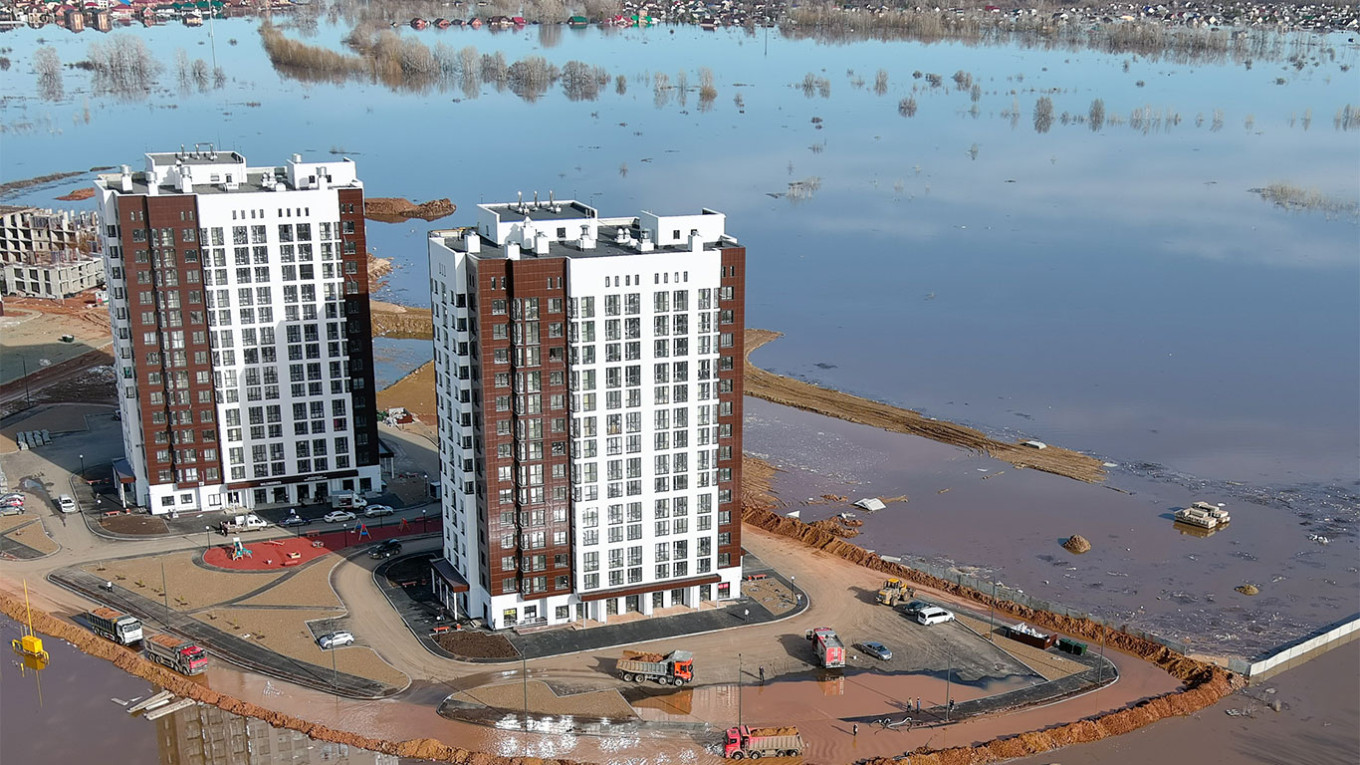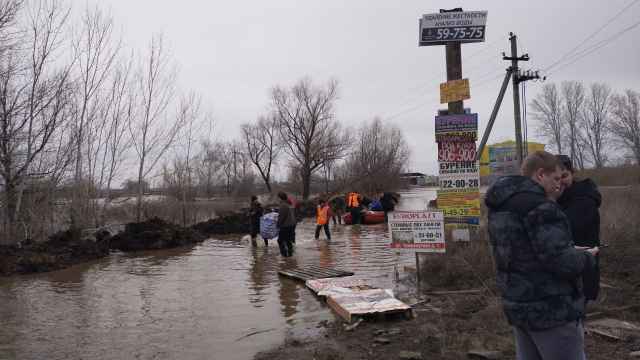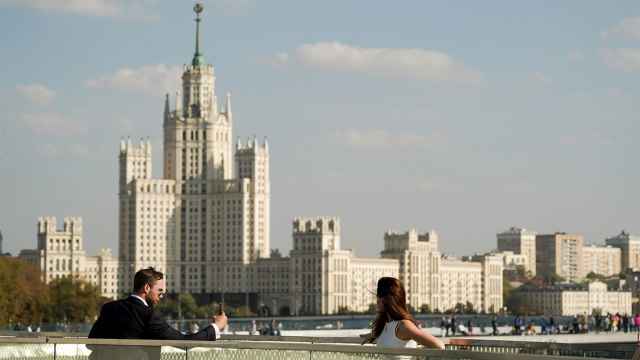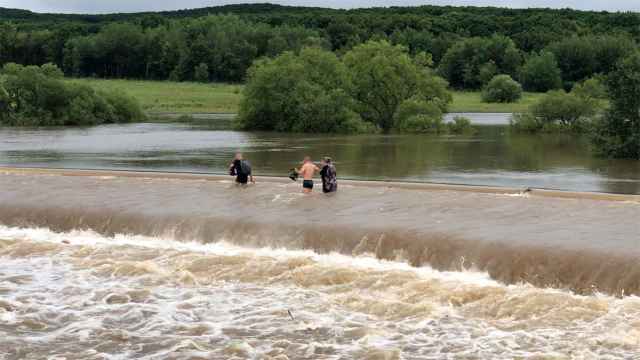The mayor of the southern Russian city of Orenburg urged residents to evacuate immediately on Friday as water in the nearby Ural River reached critically dangerous levels and was not expected to recede until next week.
“The sound of sirens is heard in the city. This is not a drill. A mass evacuation is underway,” Orenburg Mayor Sergei Salmin wrote on the messaging app Telegram. “The situation is critical, do not waste time!”
“Over the past 10 hours, the water level in the Ural [River] has risen by 40 centimeters and now stands at 11.43 [meters]. These numbers are dangerous,” the mayor added.
Scores of homes and properties in Orenburg were submerged underwater on Friday, as authorities warned that water levels in the Ural River, the third-longest in Europe, would remain “critical” over the next two days before gradually receding early next week.
In some parts of the city, which has a population of 550,000 people, only the roofs of houses could be seen rising above the flood waters.
“Orenburg’s meteorological center forecasts that the peak of the flood is expected today, April 12, followed by two days of stability, after which the water level will decrease,” deputy mayor Alexei Kudinov told reporters. Local authorities warned of power outages in the most affected areas until the water recedes.
Almost 12,000 homes and 15,000 land plots were flooded across the Orenburg region, its governor Denis Pasler told President Vladimir Putin on Thursday evening. Kudinov said more than 2,500 homes and nearly 5,000 land plots were flooded in the city of Orenburg as of early Friday.
Several villages have also been evacuated in the Kurgan and Tomsk regions further to the east.
Meanwhile, in Western Siberia, the Ishim River has also risen to dangerous levels, according to authorities in the Tyumen region. Officials predict that the Ishim and Tobol rivers will reach peak levels only around April 23-25.
Overall, Russia estimates that 10,500 homes have been flooded across 37 regions.
Fast-rising temperatures have melted snow and ice, and along with heavy rains have caused a number of major rivers that stretch across Russia and northern Kazakhstan to overflow. Around 120,000 people in both countries have been forced to evacuate their homes.
No direct link has been made between the floods and climate change, but experts say rising temperatures across the planet cause rapid snowmelt and heavy rains that lead to unprecedented flooding.
AFP contributed reporting.
A Message from The Moscow Times:
Dear readers,
We are facing unprecedented challenges. Russia's Prosecutor General's Office has designated The Moscow Times as an "undesirable" organization, criminalizing our work and putting our staff at risk of prosecution. This follows our earlier unjust labeling as a "foreign agent."
These actions are direct attempts to silence independent journalism in Russia. The authorities claim our work "discredits the decisions of the Russian leadership." We see things differently: we strive to provide accurate, unbiased reporting on Russia.
We, the journalists of The Moscow Times, refuse to be silenced. But to continue our work, we need your help.
Your support, no matter how small, makes a world of difference. If you can, please support us monthly starting from just $2. It's quick to set up, and every contribution makes a significant impact.
By supporting The Moscow Times, you're defending open, independent journalism in the face of repression. Thank you for standing with us.
Remind me later.






